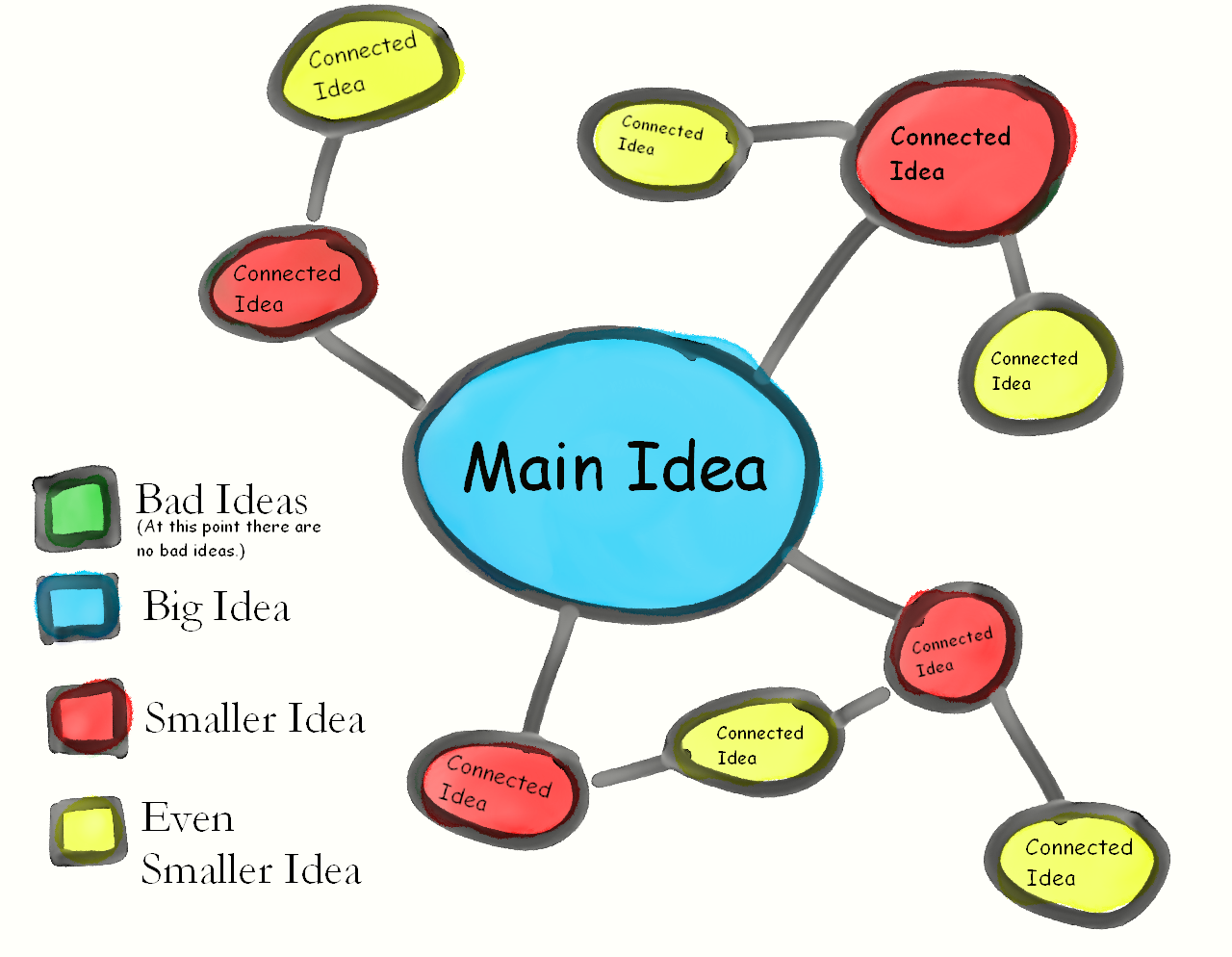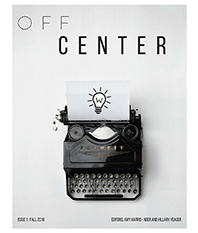Brainstorming
Brainstorming Techniques
The following list and descriptions appear in Surviving Freshman Composition, 5th ed.* You may use any one or any combination of the techniques listed to help generate ideas for an essay.
- Freewriting: Writing continuously on a topic for a set period of time without concern for correctness or accuracy. The goal is to get something down on paper.
- Looping: A series of freewriting activities in which an idea from the previous writing session generates an idea for the beginning of the next freewriting session.
- Journaling: Similar to freewriting, journaling is assigned writing on a set topic with a word length requirement rather than a set time period but with no emphasis on correctness.
- Clustering or Mapping: Jotting down topic ideas or supporting points and then circling them to organize them into clusters; or working backwards, starting with empty circles then filling them in.

- Cubing: Approaching the topic from six angles
- description
- comparison
- contrast
- free association of the subject with other words or topics
- analysis
- importance, or use.
- Listing: A basic starting point in any idea-generating activity that consists of writing down words or phrases as they occur to you in no particular order.
- Interviewing and Discussing: Talking through an idea with someone else, either an “expert” in the case of interviewing, or a member of your writing community. (For information on conducting formal interviews, see Conducting Interviews.)
- Questioning: Similar to interviewing and discussing, the writer both asks and answers the question he or she generates about the topic.
- Outlining: Formal or informal listing of sentences or phrases that communicate points concerning the topic; works well when thesis statement and topic sentences or determined and supporting paragraphs need to be fleshed out.
Think about your own writing process—do you prefer writing on a computer or by hand? Before beginning your brainstorm, think about which of these techniques could be adapted to suit your personal writing style. Don’t be afraid to try something radically different. Often, new techniques can help push past writer’s block.
* Surviving Freshman Composition, 5th ed. Ed. Rachel Strickland and Stacia Watkins. Southlake: Fountainhead Press, 2008.
Office Phone
(615) 904-8237
Location
Walker Library, Room 362
Address:
The Writing Center
Box 70
Middle Tennessee State University
Murfreesboro, TN 37132
Read about our 45th Anniversary event and take a look at our growing digital archive!



